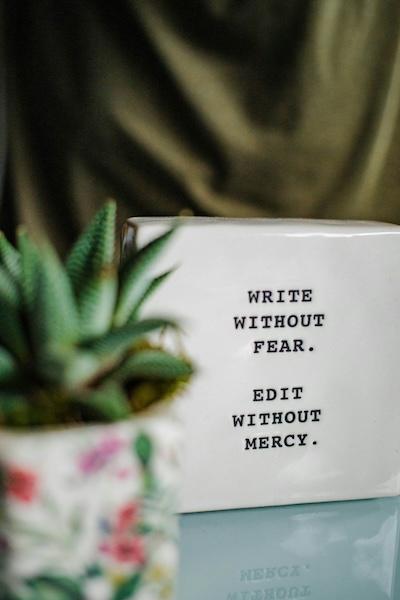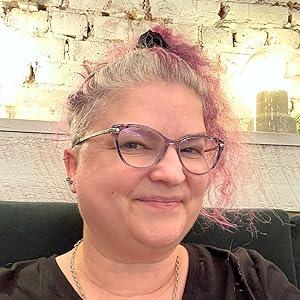Reflecting on the release of her third Alyssia novel, Storm Tree, Michigan author E.D.E. Bell shares eir thoughts about writing at its core.

This Post Could be About You
Yes, you! I recognise that not everyone is interested in this type of reflection, but for me, I find it really helpful to sometimes reflect on writing itself, in its purest forms. I’ve engaged in this conversation with writers at several conventions and seen the effect it can have on the speakers and the room, so I’m hoping here today, that, if you’re interested, we can take one of those breaths, and remember why we do what we do. Or why we can do what we can do. That we can feel something—together.
And then, we continue.
(Photo by Thom Milkovic on Unsplash)
A Cost of Capitalism
A little setup first: We know that artists need resources to survive. Food, shelter, medical care, sometimes a bite of paradise from a food truck. We deserve to live and live well. And in our system, that takes money.
And that money can be hard to find. The system we live in is designed to control who gets money, how much money, and for what work. We are all impacted by this, but for many artists it really takes a toll on our creative spirit when everything feels framed in a form of competition. Not just with each other, such as grants and publishing deals, but also with ourselves.
Discussions on writing so often focus on how to sell, should you sell, how to publish, what pays the bills, what is safe, what is popular, how not to make anyone uncomfortable doing it… Even topics of craft or writer life usually rest within this framing. These topics are rooted in how one survives as a writer, but resources are not all that is needed for survival. Our peace with ourselves, our joy, is also necessary. Hope fuels hope. The nurturing or throttling of this reaction is existential.
So, I’d like to talk about what you write. How you write. And suggest that you take some time to consider these things: Your joy. Your passion. Your necessity to create.
Because if you write, you are a writer.
And if you want to write, you should write.

A Radical Invitation
Does it seem odd to talk about capitalism and the revolution in terms of why our self-reflection matters?
I like to remember what “radical†means – it means to the root. You go at the root of whatever it is. Growth, change, reflection… To its root. It doesn’t mean far away, it means seeing and addressing the core.
We. Ourselves. Our creativity. Our value. Our expression. There is nothing more radical than that.
I think it’s a thought, no matter how little or how well we know this, worth revisiting.
And I also ask: If you haven’t considered your writing as a radical act, no matter what you write or for whom, if you don’t own this act and live with it as such, perhaps you will consider taking, and then stepping into, that view.
The Merit of Writing
Then, how do we measure what value such writing has? So often, again, we look at sales or acclaim. Often I see that question posed to writers, usually in the form of: Would you rather be a best seller or an award winner? It can be a fun question, and yes both things can open up paths to so much good.
But metrics such as these enforce systemic oppression by removing individuality. Individual pieces or bodies of writing can have impacts to communities. To small groups of readers. To individual people.
In fact, I wholeheartedly reject the stigma that work that is created from or for human need is of lesser value; there is study to the craft, sure, and works more suited for study. But I also believe art simply cannot be separated from human need. That is content.
Art connects. Always.
If one person writes a small message, and it is the message another person needed to hear that day, then this is the most valuable, most perfect work of writing in the world.
If this feels to you like a platitude, then I ask you to consider it further.
If one person writes in a journal. In a song. A word in the sand they are forbidden to speak. Then this is the most valuable, most perfect work of writing in the world. Such writing can provide inspiration for joy.
Do you feel a prickle?
Not everyone is inspired by this sort of talk. (Which is fine, too!) But if you are? If it sparks something in you, here’s what I recommend to do with it.
Write.
There is no pressure. No editor will review it unless you choose to go that way. No one who has made you feel not good enough will see your words. Your career will not change by this act.
Write.
Any format. Say words, whichever come to mind. People-watch, make stories of the squirrels in the trees, the leaves as they dance.
Write.
Pick three words that speak to you, or of wishes you have, and say them together. Arrange them. This is poetry!
Write.
(Photo by hannah grace on Unsplash)

Write in doodles! In pictures. Sing songs. Let words flow that are never captured, never remembered. Let them be ephemeral, connect with the breeze.
You are beautiful. If you want to be a writer, you can be a writer. If you want to write something that brings you joy, you can do it right now. Five minutes set aside. One minute. A few fleeting seconds. These are yours.
Fellow writers, we see each other. Will you say it with me? Out loud, if you can, if you like this thought:
“I am a writer. I feel. I create. I am beautiful.â€
Or anything, anything you want to say. Write it. Say it. Let no one censor your next few words. Or images. Or feelings.
As what you’ve just read or what you’ve just written soars on your breath, remember, people—the world—can do a lot to us. But this, they cannot take.


